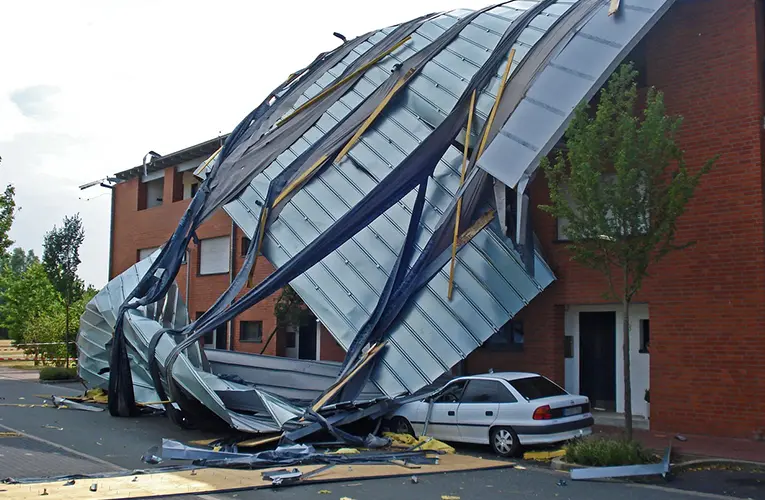Protecting Your Castle: Home & Property Insurance for Peace of Mind
Our homes are more than just bricks and mortar; they are sanctuaries, representing years of hard work, cherished memories, and a sense of security. Owning a home comes with inherent responsibilities, and safeguarding your investment through proper insurance is paramount. Home and property insurance acts as a protective shield, offering financial security in the face of unforeseen events that can damage your property or leave you liable for accidents.
This article delves into the world of home and property insurance, exploring the different types of coverage available, the factors influencing policy costs, and valuable tips for securing the right insurance plan to give you peace of mind.
A Breakdown of Coverage: Understanding Home & Property Insurance
Home and property insurance encompasses a variety of coverages, each designed to protect against specific perils. Here’s a breakdown of the most common types of coverage:
- Dwelling Coverage: This is the cornerstone of your policy and safeguards the physical structure of your home against covered perils like fire, lightning, windstorm, hail, and theft.
- Other Structures Coverage: This covers detached structures on your property, such as garages, sheds, or guest houses.
- Personal Property Coverage: This protects your belongings inside your home in case of a covered event, such as theft, fire, or vandalism.
- Loss of Use Coverage: If your home becomes uninhabitable due to a covered peril, this coverage reimburses you for additional living expenses incurred while your home is being repaired or rebuilt.
- Liability Coverage: This protects you from financial responsibility if someone gets injured or their property is damaged while on your property.
- Medical Payments Coverage: This pays for medical expenses incurred by someone who gets injured on your property, regardless of fault.
- Additional Coverages: Many policies offer optional coverages for specific needs, such as flood insurance, earthquake insurance, or additional coverage for valuables like jewelry or artwork.
Understanding Policy Costs: Factors Influencing Your Premium
The cost of your home and property insurance premium is determined by a variety of factors, including:
- Location: Homes in areas prone to natural disasters like hurricanes, tornadoes, or earthquakes will typically have higher premiums.
- Value of Your Home and Belongings: The higher the value of your property and belongings, the more expensive your insurance will be.
- Construction Materials: Homes built with fire-resistant materials or advanced security systems may qualify for discounts.
- Claims History: A history of filing claims can lead to higher premiums.
- Deductible: The deductible is the amount you pay out of pocket before your insurance coverage kicks in. Choosing a higher deductible can lower your premium, but it also means you’ll be responsible for a larger out-of-pocket expense in the event of a claim.
Finding the Right Policy: Tips for Choosing Home & Property Insurance
Selecting the right home and property insurance plan requires careful consideration. Here are some valuable tips to guide you:
- Shop Around and Compare Quotes: Don’t settle for the first policy you come across. Get quotes from multiple insurance companies to compare coverage options and pricing.
- Understand Your Coverage Needs: Evaluate your specific needs and ensure your chosen policy offers adequate coverage for your dwelling, belongings, and potential liabilities.
- Consider Your Deductible: Choose a deductible that strikes a balance between affordability and your ability to cover out-of-pocket costs in case of a claim.
- Don’t Skimp on Coverage: While cost is important, prioritize adequate coverage over finding the cheapest policy. Insufficient coverage can leave you financially exposed in the event of a major loss.
- Review Your Policy Regularly: Your needs and circumstances may change over time. Regularly review your policy to ensure it continues to meet your coverage requirements.
- Work with a Licensed Agent: A licensed insurance agent can help you understand your coverage options, assess your risks, and find the right policy for your needs.
Beyond the Policy: Additional Tips for Home & Property Security
While insurance offers financial protection, taking proactive steps to safeguard your home can minimize the risk of accidents and losses:
- Invest in Security Measures: Install a security system, deadbolts on all exterior doors, and consider smoke detectors and fire alarms.
- Maintain Your Property: Regularly inspect your roof, electrical wiring, and plumbing to identify and address potential problems that could lead to claims.
- Inventory Your Belongings: Create a detailed inventory of your belongings, including photos and receipts, to simplify the claims process in case of theft or damage.
- Prepare for Natural Disasters: Develop a disaster preparedness plan for your family and take steps to mitigate potential damage from natural disasters common in your area.










